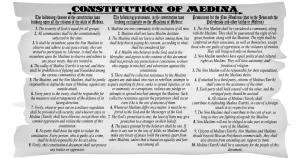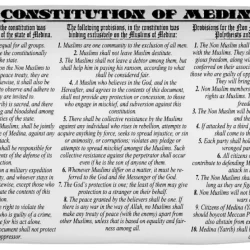In the information era, media corporate houses have emerged as powerful entities with the ability to influence public perception and shape political narratives. This comprehensive article delves into the intricate relationship between media corporate houses and their impact on political landscapes. We will analyze their influence on political narratives, media bias, the effects of media ownership on democracy, civic engagement, critical media consumption, media literacy, and media ethics.
Understanding Media Corporate Houses
Media corporate houses are not a new phenomenon. They have existed since the emergence of mass media in the late 19th and early 20th centuries. However, they have become more prominent and influential in the contemporary era of globalization, digitalization, and the commercialization of media. Media corporate houses are driven by economic interests and political agendas. They seek to maximize their profits by attracting audiences and advertisers, as well as to advance their ideological views and values by influencing public opinion and policy-making.
Media corporate houses are prominent conglomerates that own, control, and operate various media outlets, such as newspapers, magazines, television channels, radio stations, and online platforms. Over time, they have evolved from modest independent entities into massive establishments, and have a significant impact on the production, distribution, and consumption of information in society, especially on political issues.
What is Veganism? Why veganism is a misconception?
Media corporate houses can be classified into two types: horizontal and vertical. Horizontal media corporate houses own and operate media outlets across different sectors or genres of media, such as print, broadcast, and online. For example, Disney owns ABC, ESPN, Marvel, Pixar, and Star Wars. Vertical media corporate houses own and operate media outlets along the same sector or genre of media but at different stages of production or distribution. For example, Comcast owns NBCUniversal, which produces and distributes content for television, film, and streaming services.
An examination of the top media companies around the world sheds light on the magnitude of their impact. For instance, Apple, founded in 1976 by Steve Jobs and Steve Wozniak, has transformed from a tech company into a hybrid of technology and media. With a staggering market capitalization of $2.74 trillion, Apple has ventured into streaming and news media services, such as Apple Music, Apple TV, Apple Books, and Apple News. Their acquisition of Beats and Shazam further exemplifies their expansion in the media domain.
Another significant player in the media landscape is Warner Bros. Discovery, founded in April 2022. With an extensive portfolio, this company encompasses Warner Bros. film and television studios, DC Entertainment, HBO, Turner Broadcasting, TNT, and CNN. Their influence spans various media sectors, making them a potent force in the industry.
While the largest media companies might be more familiar, the prevalence of corporate influence in the media extends beyond them. Many conglomerates exert significant control over the information landscape. For instance, BBC, HBO, CNN, National Geographic, and MTV are among the top five media institutions globally, demonstrating their widespread reach and impact. These giants form corporate linkages and collaborations with local media houses, influencing media ownership patterns worldwide. The cultural and political implications of such control over information dissemination and consumption are significant, raising questions about media freedom and democracy in various regions.
Media Influence on Political Narratives
Media corporate houses wield the power to frame political news in specific ways, emphasizing certain aspects while downplaying others, thus swaying public opinion and shaping policy debates. By controlling the narrative, they hold the potential to shape the way political events and issues are perceived by the masses.
Framing of Political News
One of the primary mechanisms through which media corporate houses influence political narratives is through framing. They selectively present information and choose specific angles to present news stories, influencing how the audience perceives political developments. For instance, a media outlet might focus on the economic implications of a policy while disregarding its social consequences, leading to divergent public perceptions.
French Colonialism in Africa: Unraveling the Complex Legacy
An illustrative example of media framing’s influence can be seen during elections, where media houses may highlight a candidate’s achievements and strengths while downplaying their weaknesses or controversies. By doing so, they impact how voters perceive the candidate, potentially swaying their voting decisions.
In 2015, a study by the Shorenstein Center on Media, Politics, and Public Policy at Harvard University found that Fox News was the most biased news outlet in the United States. The study found that Fox News was more likely than other news outlets to air stories that were negative about Democrats and positive about Republicans.
Agenda-Setting and Public Perception
Media influence on political narratives through agenda-setting is a powerful mechanism that significantly impacts public perception and understanding of political events. Agenda-setting refers to the power of media corporate houses to determine which stories receive prominence and how they are covered, thus shaping the issues that become important to the public. This influence can be observed across different countries and continents, where the strength of agenda-setting effects varies depending on individual and macro variables.
Research studies have explored the agenda-setting effects of media in various countries and found that these effects differ based on certain factors. Individual factors such as age, education, living area, and political ideology, along with national macro variables like economic development and media freedom, have been associated with the strength of agenda-setting effects. For instance, citizens in countries with higher media freedom might experience stronger agenda-setting effects compared to those in countries with restricted media freedom.
The agenda-setting power of media corporate houses is particularly pronounced in the digital age, where social media platforms play a significant role in shaping public perceptions and attitudes toward political issues. Citizens’ media consumption patterns are increasingly driven by their inherent content preferences, leading to a growing number of news-disconnected individuals. As a result, political entertainment genres, such as “democratainment” and “politicotainment,” have emerged as alternatives that engage unengaged audiences with the public sphere through entertaining content.
One interesting aspect of agenda-setting is its impact on the perception of corruption. Studies have shown that the source of one’s news media, such as social media versus traditional media, can systematically affect one’s perception of political corruption. Consumers of news predominantly from social media platforms may have higher perceptions of political corruption compared to consumers of traditional media sources. Additionally, perceptions of corruption among social media consumers may be more polarized, leading to a larger gap in corruption perception between supporters of government and opposition political parties compared to traditional news consumers.
The Impact of Benjamin Netanyahu’s Leadership on Israel and the Palestinians
In 2019, the BBC was accused of bias in its coverage of the Brexit referendum. Some critics argued that the BBC had given too much airtime to pro-Brexit voices while giving short shrift to pro-remain voices. The BBC denied these accusations, but the controversy led to calls for an independent inquiry into the BBC’s impartiality.
Overall, the agenda-setting power of media corporate houses shapes the political narrative and determines the salience of issues in the public agenda. It influences public perception, drives citizens’ attention to specific topics, and plays a crucial role in shaping the political landscape in different countries and regions around the world.
Role of Social Media Platforms
The rise of social media has significantly expanded the reach and influence of media corporate houses, providing them with a powerful avenue to shape public opinion and political narratives on a massive scale. Social media platforms have become key commodities, facilitating interpersonal and group interactions, and providing unique opportunities for community leaders, elected officials, and governments to communicate with the citizenry. They have also emerged as crucial tools for marketing strategies, enabling industries and businesses to connect with consumers and influence public perception of products and services.
Social media’s impact on politics and democracy has been a subject of extensive research and discussion worldwide. The effects of social media on political narratives can be observed in various aspects:
1. Political Awareness and Information: Social media platforms play a significant role in disseminating news and information, allowing users to stay updated on political events and issues globally. Citizens increasingly rely on social media to accumulate knowledge about products, services, and political developments, making it an essential tool for political awareness.
2. Political Engagement and Participation: Social media’s networked nature facilitates political engagement, providing opportunities for individuals to express opinions, discuss issues, and participate in political activities. It has become a platform for both online and offline political happenings, particularly among younger generations in various countries.
3. Political Polarization: The influence of social media on political narratives has contributed to both ideological and affective polarization. The divergence of political opinions and the increase in out-group animosity have been observed, leading to heightened political divisions within societies.
4. Geopolitics and Economic Growth: Social media has impacted geopolitics by decreasing censorship and increasing the spread of information, enabling politicians to influence individuals through online networks. While it can unite diverse groups and contribute positively to geopolitics and economic growth, it also presents challenges, such as decreased productivity and the potential for participatory risks.
The effects of social media on politics are complex and multifaceted, with both positive and negative outcomes. While it provides opportunities for democratic engagement and political awareness, it also raises concerns regarding misinformation, foreign meddling, and political polarization.
Media Bias and Its Implications
Media bias is a prevalent concern in today’s media landscape, influencing news reporting and potentially impacting public trust in the media. Media bias refers to the bias of journalists and news producers within mass media outlets in the selection and presentation of events and stories. This bias can be pervasive, contravening the standards of journalism, and it may not necessarily represent the perspective of an individual journalist or article. The direction and degree of media bias vary across countries, making it a widely disputed phenomenon globally.
Several types of media bias exist, each with its potential consequences on political narratives and public opinion. Three prominent forms of bias are partisan bias, sensationalism, and selective reporting.
Partisan Bias
Partisan bias in media occurs when media outlets demonstrate favoritism towards specific political ideologies, parties, or individuals in their reporting. This bias can have significant implications as it shapes how audiences perceive political events and figures. Examples of this bias can be seen in news channels like FOX News and CNN in the United States, which cater to different audiences and tend to report the news with a bias toward their respective Democratic or Republican viewpoints.
Evidence around the world suggests that citizens perceive news coverage as ideologically slanted, leading to a decrease in trust in the news media. Research has shown that partisan media outlets wield considerable influence over people’s attitudes on major issues. A study conducted on Fox News viewers found that those who were paid to watch rival cable news network CNN developed different views on issues like President Donald Trump’s handling of the COVID-19 pandemic and the racial justice protests compared to those who continued watching Fox News.
Israeli Spyware Pegasus: Everything you need to know
Moreover, a survey across 38 countries found that a median of 75% of respondents believe it is never acceptable for a news organization to favor one political party over others when reporting the news. However, there are mixed sentiments regarding how news media are doing on reporting political issues fairly, with only a median of 52% saying their news media do a good job of reporting fairly, while 44% disagree.
In the United States, the perception of partisan bias in the news media has increased over the years. In 2023, 62% of U.S. adults believe the media has a favorite political party, up from about 50% in previous years. The majority of Americans who perceive political bias in the news media say it favors Democrats (64%), while a smaller proportion (22%) believe it favors Republicans.
Partisan bias can have serious implications for society. It can weaken the electorate’s ability to evaluate the performance of elected leaders by filtering out unflattering or negative information about their preferred ideological side. This bias can also influence the issues viewers consider most pressing, as partisan media outlets set the news agenda through their coverage choices.
Sensationalism
Sensationalism in media refers to a journalistic tactic where events and topics in news stories are selected and presented in a way that provokes strong emotional responses in readers and viewers. The emphasis is placed on stories that trigger feelings of fear, anger, or excitement, rather than prioritizing more critical but less attention-grabbing news. This approach can distort public perceptions of important issues and divert attention from significant matters.
An analysis of television news content in 14 countries found that sensational news, particularly related to crime, accidents, and disasters, remains prevalent across different media systems. Sensationalism tends to be more pronounced in dual broadcasting systems compared to commercial broadcasting systems. Additionally, media outlets often personalize and dramatize news stories by featuring celebrities or ordinary people, leading to a more emotionally charged narrative.
Who are China’s Uighur Minority? What’s happening with them?
One of the consequences of sensationalism is the potential manipulation of public opinions and decisions. By framing news stories in a sensational manner, media outlets can influence the audience’s perspective on issues and even affect their behavior. This can lead to irrational shifts in public behaviors, potentially undermining the public’s ability to make informed decisions based on accurate information.
Sensationalism is not confined to a specific region but is a global phenomenon. For example, in the United States, there has been an increase in perceptions of media bias, with 62% of adults believing that the media favors one political party over the other. This bias can affect the way news is reported, leading to the neglect of critical but less sensational stories.
The impact of sensationalism extends beyond public perception to affect societal values and development. It can create false hopes, and unwarranted fears, and desensitize the public to important issues. Moreover, sensationalized reporting can fuel social unrest and trigger revengeful actions, ultimately hindering the progress of a society.
Selective Reporting
Selective reporting involves the deliberate choice of which events or information to include or exclude in a news story, often to suit a particular narrative or agenda. This bias can manifest through bias by omission, where certain aspects of a story are left out, leading to incomplete or misleading reporting.
The implications of media bias are significant. Distorted news reporting can erode public trust in journalism and media outlets, undermining the crucial role of the media in informing and engaging citizens. It can also contribute to political polarization, reinforcing existing beliefs and discouraging open dialogue between different ideological groups. Moreover, media bias can shape public perceptions of reality, potentially hindering informed decision-making and citizen engagement in public affairs.
These are just a few of the ways that media corporate houses can manipulate political narratives through their ill-motivated misinformation and partial news. It is important to be aware of these techniques so that you can be a critical consumer of news and information.
In addition to the above, media corporate houses can also promote their nonsense ideology like gender fluidity through,
Cherry-picking: This means selectively choosing data or statistics that support their desired narrative while ignoring others that may contradict it. For example, a news outlet might only report on the economic data that shows that the country is doing well while ignoring data that shows that some people are struggling.
Using loaded language: This means using words or phrases that have positive or negative connotations, even if they are not strictly accurate. For example, a news outlet might refer to a political opponent as a “radical” or an “extremist,” even if they are not actually radical or extremist.
Using opinion pieces and editorials: These are pieces of writing that express the personal opinions of the author, and they are often used to promote a particular viewpoint. For example, a news outlet might publish an opinion piece that argues ideology like gender fluidity is a legitimate identity.
Impact on Public Opinion
Media bias can significantly impact public opinion by shaping the beliefs and attitudes of news consumers toward certain political ideologies or agendas. Biased reporting in media outlets can lead to skewed perspectives on various issues, influencing how people perceive events and make decisions. Understanding the effects of media bias is crucial for maintaining an informed and engaged citizenry in a democratic society.
Studies have explored the relationship between media bias and public opinion. For instance, research has shown that media outlets often report news in a subjective manner, potentially conditioning the opinions of their consumers. In the case of ‘Demonetization in India,’ a significant fraction of news tweets were found to be subjective in nature, acting as opinion-conditioning agents for their audience. This demonstrates how biased reporting can influence the way news consumers interpret and respond to events.
What is America’s Blackwater? How does it terrorize the World?
One aspect of media bias is the role of public broadcasting. Public media outlets, like the BBC in the UK or NHK in Japan, are expected to provide neutral and reliable information to the public. However, even in the context of for-profit media, people may have different expectations of public broadcasters compared to private media outlets. Research suggests that people tend to reject biased information from public media based on their expectations of neutrality, while their rejection of biased information from private media may be influenced by their political ideology. This finding highlights the complex interplay between media bias and public perceptions in different media contexts.
The impact of media bias extends beyond domestic affairs and can also influence perceptions of foreign countries. Public opinion in democracies like the United States can shape relations between countries, and media depictions play a significant role in forming attitudes toward foreign lands. For example, how the American public views China can affect relations between the two countries. Since most Americans form their opinions of China from media portrayals and have limited personal experiences, biased reporting can have a substantial impact on public opinion about China.
Media Ownership and Political Narratives
The concentration of Media Ownership
Media ownership concentration, characterized by a small number of powerful entities controlling significant portions of the media landscape, raises critical concerns about media pluralism and diversity of opinions worldwide. This concentration of ownership can have far-reaching effects on media content and has a profound impact on democracy and free expression.
An illustrative example of media ownership concentration is evident in the United States, where just six media conglomerates dominate the majority of the media market. These conglomerates include Comcast, The Walt Disney Company, Warner Bros. Discovery, Paramount Global, News Corp, and Viacom. Together, they wield substantial control over various media outlets, including television networks, newspapers, and digital platforms. This concentration of ownership can limit the range of viewpoints presented to the public, as many media sources might share similar perspectives and align with the interests of their parent corporations.
The effects of media ownership concentration on pluralism and diversity of opinions are significant. When media outlets are concentrated under a few powerful owners, there is a risk of limited representation of diverse voices and perspectives. A reduced range of opinions can lead to biased reporting and the suppression of alternative viewpoints. This situation can undermine the principle of media pluralism, where a variety of ideas and perspectives are encouraged to foster a more informed and engaged public.
The implications of media ownership concentration extend to the content produced and disseminated by media outlets. Concentrated media ownership can lead to a focus on profit-driven content rather than a commitment to public interest and democratic values. This influence on media operations can result in sensationalism, biased reporting, and the prioritization of content that aligns with the interests of the owners. For instance, conglomerates may emphasize entertainment over substantive news, affecting the public’s understanding of critical issues and limiting their ability to make informed decisions.
What is the Gender Pay Gap? Does it really exist?
Moreover, media ownership concentration can have adverse effects on democracy and free expression. When a small number of entities control the media market, the diversity of information available to the public might be compromised. This situation can hinder the democratic process by limiting access to varied perspectives, hindering open debates, and fostering echo chambers that reinforce existing beliefs. The concentration of media ownership can also create conflicts of interest, where corporate or political agendas might influence the editorial decisions of media outlets, potentially compromising their independence and journalistic integrity.
Addressing these challenges requires robust policy actions at both global and local levels. Governments and regulatory bodies can implement measures to promote media diversity and prevent excessive ownership concentration. These may include antitrust laws, cross-ownership restrictions, and support for independent media outlets. Efforts to foster media literacy among the public can also empower individuals to critically engage with media content and seek diverse sources of information. A diverse and independent media landscape is essential for sustaining democratic societies and ensuring the free flow of information and ideas.
Be aware of Media Corporate House
Forming corporate linkages and collaborations with local media houses these giants like BBC, FOX News, CNN, the Telegraph, etc., influence media ownership patterns worldwide. The cultural and political implications of such control over information dissemination and consumption are significant, raising questions about media freedom and democracy in various regions. The dangerous potential of media corporate houses like the BBC and Fox News to manipulate and shape political narratives is evident in the case of Andrew Tate, a British-American kickboxer, entrepreneur, and internet personality. In 2020, the BBC and other media outlets published numerous articles accusing Tate of misogyny, sexism, and transphobia, leading to widespread social media sharing and online abuse directed at him. These allegations were made without sufficient evidence, leading to a defamation lawsuit by Tate against the BBC.
The case against Tate was perceived by many as an attempt to silence him for his controversial views. Some argued that the BBC and its fellows were pushing a “woke” narrative on society, intolerant of dissenting voices. Others contended that the media was merely reporting on Tate’s views and not trying to silence him. Regardless of these opinions, it is evident that the media played a role in damaging Andrew Tate’s reputation without proper verification of the allegations, thus violating his freedom of speech and expression.
What is Woke Culture? Why is it so controversial?
This incident highlights a concerning pattern of media outlets targeting individuals with controversial views. The BBC, in particular, has faced accusations of bias in its coverage of various cases, indicating a lack of impartiality as a public service broadcaster. This bias can have far-reaching consequences as it limits the diversity of viewpoints presented to the public and undermines the role of media as a reliable source of information.
Furthermore, the rise of “cancel culture” in recent years has exacerbated the problem. Cancel culture involves attacking and ostracizing individuals for expressing unpopular or controversial opinions. Social media platforms have played a significant role in facilitating such attacks, leading to the suppression of free speech and expression. This trend poses a significant threat to democracy and individual liberties, as it stifles open debate and promotes groupthink.
To safeguard freedom of speech and expression, it is essential to be aware of these trends and defend the right of individuals to hold and express their own views, even if they are unpopular or controversial. Media corporate houses must uphold journalistic integrity by ensuring accuracy and fairness in their reporting, avoiding the propagation of unverified claims that can damage reputations and incite online harassment. Additionally, social media platforms should strive to create a balanced environment that respects diverse opinions and discourages mob-driven cancel culture.
Media Corporate House has the Responsibility
The case of Andrew Tate demonstrates the potential danger of media corporate houses manipulating and shaping political narratives without proper verification of claims. It should not do so. It plays a vital role in democracy. It highlights their crucial position as a watchdog, overseeing government activities, and ensuring accountability. As the fourth estate, the media bears the responsibility of informing the public and actively safeguarding democratic values.
Media corporate houses shoulder the responsibility of providing accurate, objective, and reliable information to the public. This responsibility is vital for fostering an informed citizenry and sustaining democratic values.
However, media organizations encounter challenges in maintaining ethical journalism due to commercial pressures, political influences, and sensationalism. Striving for journalistic integrity entails resisting these pressures and adhering to the principles of truth and fairness in reporting.
Media corporate houses hold significant power in shaping political narratives and influencing public opinion. Their role as influencers demands responsible journalism, transparency, and adherence to ethical standards. In a world inundated with information, media literacy becomes a critical tool for citizens to navigate the complex media landscape and become active participants in democracy.















